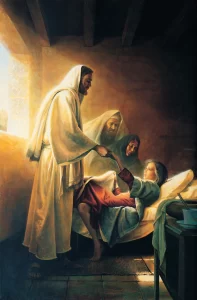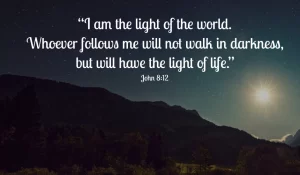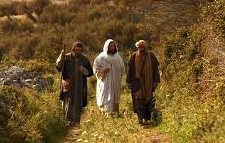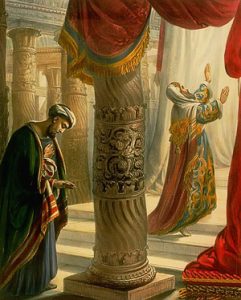O for OPEN
There are things which are known to us – we have read and heard about those topics.
The information has been given to us, these recommendations have been repeated, but…
But… it seems that we still need to be reminded of what has been said.
 This is true precisely about the teaching of Jesus on … prayer.
This is true precisely about the teaching of Jesus on … prayer.
He assures us:
“Ask and it will be given to you;
seek and you will find;
knock and the door will be opened to you”. (Mathhew 7:7-12)
The affirmation is repeated three times in a different way.
The commandment is somehow ‘hammered down’ with three examples of daily life.
Could it be that Jesus knows all too well our hesitation to bring our needs to God?…
As an example, he mentions our own attitude, we, parents, towards our children.
“If you, then, though you are evil,
know how to give good gifts to your children,
how much more will your Father in heaven
give good gifts to those who ask him!”
We hesitate, we postpone, we have doubts…
Even these words of Jesus are not sufficient to convince us – what else are we waiting for?…
“The door WIL BE OPENED…” if we knock…


 brought back to life.
brought back to life. M for Message
M for Message

 Yet, Jesus has said clearly:
Yet, Jesus has said clearly: John, the apostle, shows him leaving Judaea for Galilee – a journey of some 112 kilometers (John 4:3).
John, the apostle, shows him leaving Judaea for Galilee – a journey of some 112 kilometers (John 4:3). It is the case of the text of Luke, the gospel writer, reporting Jesus words (Luke 6:37-38)
It is the case of the text of Luke, the gospel writer, reporting Jesus words (Luke 6:37-38) If I asked you if you ever received an invitation from… Jesus, what would your reaction be?
If I asked you if you ever received an invitation from… Jesus, what would your reaction be? “To some who were confident of their own righteousness and looked down on everyone else,
“To some who were confident of their own righteousness and looked down on everyone else,  “God said, “Take your son, your only son, whom you love – Isaac –
“God said, “Take your son, your only son, whom you love – Isaac –